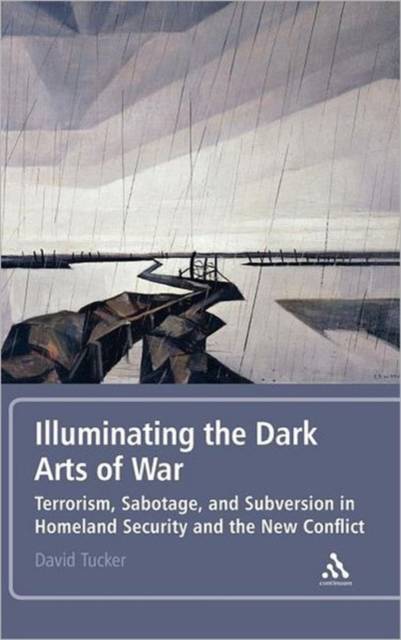
Je cadeautjes zeker op tijd in huis hebben voor de feestdagen? Kom langs in onze winkels en vind het perfecte geschenk!
- Afhalen na 1 uur in een winkel met voorraad
- Gratis thuislevering in België vanaf € 30
- Ruim aanbod met 7 miljoen producten
Je cadeautjes zeker op tijd in huis hebben voor de feestdagen? Kom langs in onze winkels en vind het perfecte geschenk!
- Afhalen na 1 uur in een winkel met voorraad
- Gratis thuislevering in België vanaf € 30
- Ruim aanbod met 7 miljoen producten
Zoeken
Illuminating the Dark Arts of War
Terrorism, Sabotage, and Subversion in Homeland Security and the New Conflict
David Tucker
Hardcover | Engels
€ 322,45
+ 644 punten
Uitvoering
Omschrijving
Since 9/11, the dominant view is that we have entered an era of new conflict in which technology has empowered non-state actors who now pose unprecedented and unmanageable threats to U.S. national security. This unique work studies a range of threats, from homegrown and foreign terrorism to the possibility of cyber- or Chinese sabotage and fears of religious subversion to challenge every aspects of this new conflict argument and expose its underlying exaggerations and misunderstandings. Examining such issues as political violence, the role of religion in terrorism, the impact of technology, and the political aspects of homeland security, this unique survey demonstrates how such activities as terrorism are limited by their clandestine nature. It also addresses why we need to switch our strategic focus and increase the role citizens have in dealing with such threats. This historically informed and critical analysis fills a void in the debates on the threats and conflicts that the U.S. confronts at home and abroad and will appeal to anyone interested in national security and terrorism.
Specificaties
Betrokkenen
- Auteur(s):
- Uitgeverij:
Inhoud
- Aantal bladzijden:
- 280
- Taal:
- Engels
Eigenschappen
- Productcode (EAN):
- 9781441129550
- Verschijningsdatum:
- 1/03/2012
- Uitvoering:
- Hardcover
- Formaat:
- Genaaid
- Afmetingen:
- 142 mm x 231 mm
- Gewicht:
- 566 g

Alleen bij Standaard Boekhandel
+ 644 punten op je klantenkaart van Standaard Boekhandel
Beoordelingen
We publiceren alleen reviews die voldoen aan de voorwaarden voor reviews. Bekijk onze voorwaarden voor reviews.









